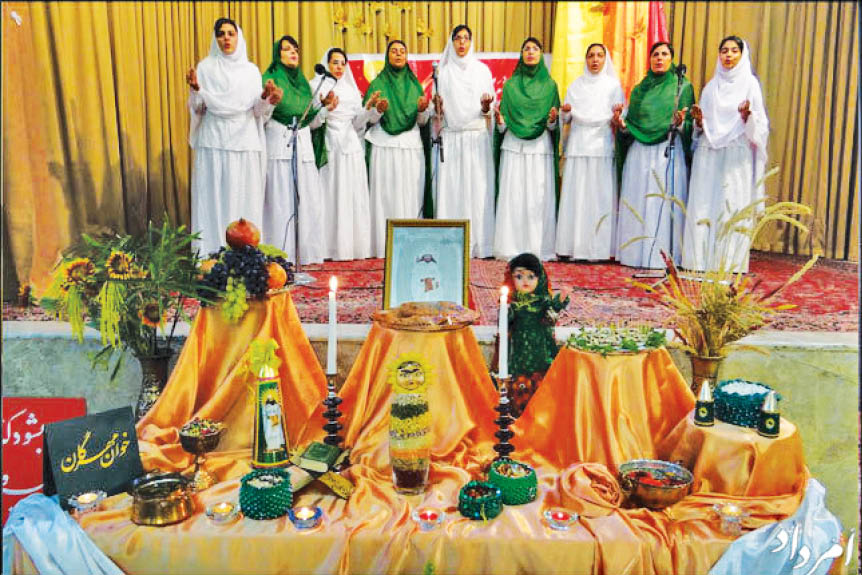Meheregan, the largest Iranian festival after Noruz, dates back to ancient times when the start of autumn brought the start of the new year. Iran’s Research Institute of Cultural Heritage and Tourism is developing a dossier for the possible inscription of Mehregan on the UNESCO World Heritage list. The Persian festival marks friendship, affection, and love. Mehregan is planned to be inscribed jointly with Tajikistan, since it is currently performed among Zoroastrian communities in Iran and the people of Tajikistan, quoted an official earlier this week.
Marking the autumnal equinox, when day and night are equal, Meheregan brings together clusters of Iranian Zoroastrians in celebration of Mithra – the ancient Goddess of Friendship, Affection and Love. The celebrations are usually opened up with keynote speeches by Zoroastrian religious figures and officials, followed by Shahnameh recitations, contests and other joyful customaries.
A key feature for the event is large spreads in purple, laden with various ingredients, dishes, and elements each on behalf of a particular belief. Fruits, vegetables, dried nuts, sweets, rosewater, grilled lamb meat, lotus seeds, and silver coins, and a scale are typically placed, the latter symbolizes autumnal equinox.
Mehregan falls on the 196th day of the Iranian calendar, which usually equals October 2 in the Gregorian calendar. The festivity used to be a traditional autumn harvest festival with several accounts of its origins. During the Achaemenid era (c. 550–330 BC), Mehregan was observed in an extravagant style in Persepolis at a time for harvest when taxes were collected. Avestan texts divide the Iranian year into two equal parts or seasons – summer and winter.
According to legend, Mehregan was a day of victory for Fereydoon and Kaveh, who overcame Zahak. They imprisoned him in Mount Damavand where he later died of his wounds. After the capture of Zahak, Fereydoon was nominated as the king and the people celebrate this occasion with great fervor. The story has been narrated in Shahnameh, the epic poem written by the illustrated Persian poet Ferdowsi (940-1020 CE).
(Courtesy: Tehran Times)
- દિકરી એટલે બીજી માં… - 20 April2024
- નાગપુરની બાઈ હીરાબાઈ એમ. મુલાનદરેમહેરનો ઇતિહાસ - 20 April2024
- વિશ્વ ભારતી સંસ્થાન દ્વારા રતિ વાડિયાનુંસન્માન કરવામાં આવ્યું - 20 April2024
